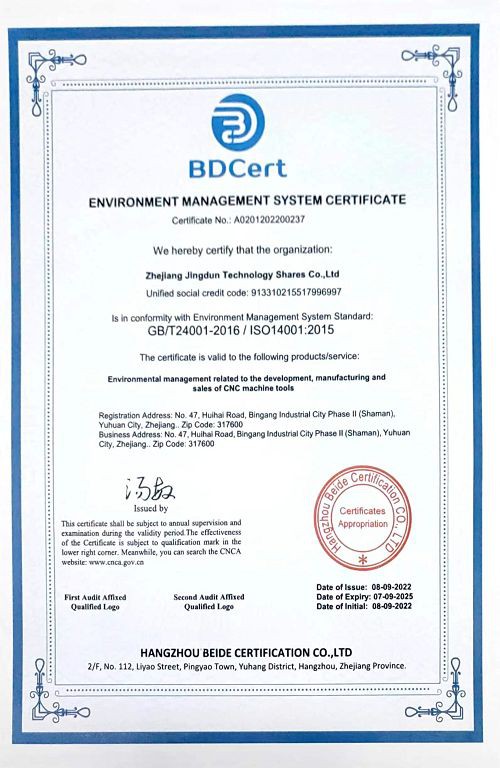why choose us
'lt is awesome to work with Creative. amazingy organized,easy to communicate with. responsive with next iterations,and beautiful work.
Professional Team
We have a team for sales engineer and aftersales, service. This team focus on give customer a good experience.
Competitive Price
We have different series, covered high, middle, economical class with super high performance-price ratio.
Rich Experience
We are professional machine tool manufacturer. You may check with us for most suitable solutions.
Quality Assurance
Strict detection during production. Strict sampling inspection on products before shipment and intact product packaging.
What is Brass Valve
Brass valves are devices used to regulate, direct, or control the flow of fluids, typically within a plumbing system. They are constructed from brass, a metal alloy consisting primarily of copper and zinc, which provides excellent corrosion resistance and durability. Brass valves come in various types, including ball valves, gate valves, check valves, and globe valves, each designed for specific applications.
Why Is Brass Used in Valves
Brass is a popular choice for valve material because it has several properties that make it well-suited for use in valve applications. Some of the reasons why brass is preferred for valves include:
Strength
Brass is a strong and durable material that can withstand high pressures and extreme temperatures, making it suitable for use in valve applications.
01
Corrosion resistance
Brass is resistant to corrosion, which makes it suitable for use in a variety of environments, including marine and coastal areas.
02
Machinability
Brass is easy to machine, which makes it easy to manufacture and customize valves to meet specific design requirements.
03
Cost
Brass is less expensive than other materials such as stainless steel, making it a cost-effective choice for valve applications.
04
Compatibility
Brass is compatible with a wide range of fluids, including water, oil, gas, and other fluids, making it suitable for use in a variety of industries and applications.
05
Applications Of Brass Valves




Residential Plumbing
Brass valves are extensively used in residential plumbing systems. They are employed in various fixtures and appliances, such as sinks, toilets, and washing machines. Ball valves, with their simple design and efficient shut-off capabilities, are commonly used in residential applications. Their durability ensures long-term reliability, reducing the need for frequent replacements.
Commercial And Industrial Plumbing
In commercial and industrial settings, the demands on plumbing systems are often more substantial. Brass valves excel in these environments due to their ability to handle high pressure and temperature variations. They are utilized in a wide range of applications, including heating and cooling systems, fire protection systems, and industrial processes. Gate valves, known for their precise flow control, are frequently used in these sectors.
Water Treatment Plants
Water treatment plants rely on brass valves for their robust construction and resistance to corrosion. These valves play a pivotal role in regulating the flow of water during various stages of the treatment process. Their durability ensures that the valves can withstand the harsh chemical environments encountered in water treatment facilities.
Agriculture
Agriculture heavily relies on brass valves for irrigation systems. Farmers use these valves to control the flow of water to fields, ensuring proper hydration for crops. The resilience of brass valves is particularly advantageous in agricultural applications, where they may be exposed to adverse weather conditions.
Types Of Brass Valves
Ball Valves
Ball valves are popular for their simple design and efficient flow control. They consist of a pivoting ball with a hole through it, which can be turned to allow or block flow. This design makes them excellent for shut-off applications, and they are often used in residential plumbing for fixtures like sinks and toilets.
Gate Valves
Gate valves are known for their precise control of fluid flow. They use a gate-like disc that moves up and down to control the flow rate. These valves are often employed in industrial settings and in situations where a gradual shutoff is needed, such as in water mains.
Check Valves
Check valves are one-way valves that allow fluid to flow in one direction but prevent it from flowing in the opposite direction. They are commonly used in sump pumps and in preventing backflow in plumbing systems.
Globe Valves
Globe valves are versatile and used for both throttling and frequent on-off applications. They have a globe-shaped body with a movable plug that controls flow. Globe valves are used in various industries, including HVAC systems and water treatment.
Brass is a copper alloy, making it more durable than plastic. Because their added strength is more expensive than PVC or plastic valves, even if they are not the most expensive option for valves. Brass is a blend of copper and zinc, with a few other metals thrown in. Compared to plastic valves, it has a soft metal character that allows it to resist corrosion quite well. Brass can absorb and resist more heat than plastic, making brass valves an excellent choice for plumbing systems in the home.
Exceptional adaptability
Because brass is used for so many various things, you can obtain the fittings you need in a wide variety of forms, widths, and sizes, as well as fittings that allow you to change the size of the pipe. When working on a project with highly particular requirements, brass is the way to go. It also improves the efficiency of your home’s water delivery lines. If you need exposed fittings, brass can be lacquered, polished, chrome-plated, nickel-plated, or given an antique look.
Durability
Brass is a highly durable metal due to its numerous other functioning qualities. Brass fittings are a wonderful choice for a plumbing system that requires a long service life because they do not crack or disintegrate over time. It also gives you the highest performance in hot water supply lines.
High-Temperature Tolerance
Brass is the finest material for hot water distribution systems because it has excellent temperature conductivity and improves the system’s efficiency. Brass is malleable in high temperatures and can resist far higher temperatures than other metals, where it may be one of the only items to survive a major house fire.
Corrosion Resistance
Other metal fittings are susceptible to corrosion; however, brass is unrivaled in corrosion resistance. Corrosion and rust can cause considerable wear and tear on metal fittings; therefore, choosing a corrosion-resistant metal is the best option. Brass fittings, which do not rust or corrode in bad water pH conditions, are ideal for places with corrosive water. Brass is impervious to even the most corrosive water.
Very malleable
Brass is more malleable than steel or iron pipe, making it easier to work with when it comes to fittings that require bending or shaping. It also molds better than most other materials. If you’ve ever had to deal with a faulty plumbing job, you know how essential this property may be in lowering labor expenses due to its ease of use. Despite its malleability, the metal has a high level of resilience and dependability. Brass is an excellent material for your plumbing or waterworks system, giving years of dependable service without the risk of corrosion or heat while also delivering a high-quality fitting.
Construction Of Brass Valve
Free Cutting Brass: This type of brass contains lead, which makes it easier to machine and cut. It is commonly used for valves that require tight tolerances and precise machining.
Naval Brass: Naval brass is a type of brass that contains a higher percentage of zinc than other types of brass, which makes it more resistant to saltwater corrosion. It is commonly used for marine applications.
Red Brass: Red brass, also known as gunmetal, is a type of brass that contains a higher percentage of copper than other types of brass. It is known for its excellent strength and corrosion resistance, and is commonly used for high-pressure valves.
Yellow Brass: Yellow brass is a type of brass that contains a higher percentage of zinc than other types of brass. It is commonly used for low-pressure valves and fittings.
Dezincification-resistant Brass: This type of brass is specially formulated to resist dezincification, which is a type of corrosion that can occur in brass valves when they are exposed to certain chemicals or environments. It is commonly used for valves that are exposed to harsh chemicals or environments.
When to Choose Brass Valves
So, when should you choose brass valves for your plumbing system? Here are a few situations where brass valves might be the best choice:
For high-temperature applications
Brass valves are excellent for use in areas where high temperatures are common, such as near the water heater.
In areas with hard water
If you live in an area with hard water, brass valves can withstand the corrosive effects of mineral buildup better than plastic valves.
In areas where water pressure is high
Brass valves can withstand higher water pressures than plastic valves, making them a better choice in areas where water pressure is an issue.
In situations where reliability is essential
If you need a valve that will function smoothly and efficiently for years to come, brass valves are an excellent choice.
Installation And Maintenance Tips For One-Way Brass Valve
Orientation Matters
During the installation process, pay close attention to the arrow or directional indicator usually marked on the valve body. This arrow indicates the flow direction, and it is crucial to install the valve in the correct orientation.
Avoid Strain
When connecting the one-way brass valve to the pipeline, it is essential to avoid over-tightening the fittings. Applying excessive force can cause damage to the valve body or the seals, leading to potential leaks or improper functioning. Use proper tools and tighten the fittings to the recommended torque to ensure a secure and leak-free connection.
Mounting Position
The mounting position of the one-way brass valve is an often-overlooked aspect during installation. Choose a position that allows easy access for maintenance and repair. Consider factors such as clearance for handle operation, visibility for inspection, and convenience for any future adjustments. A well-thought-out mounting position can save time and effort during maintenance tasks.
Check for Leaks
Regularly inspect the one-way brass valve for any signs of leakage. Look for drips or puddles around the valve body or fittings. If you notice any leaks, address them promptly to prevent water or fluid wastage and to maintain the efficiency of your system.
Verify Valve Operation
Periodically test the valve to ensure it opens and closes correctly. A malfunctioning valve may lead to flow restrictions or backflow problems, which can disrupt the functioning of your plumbing or industrial system. If you encounter any issues during testing, investigate the cause and perform necessary repairs or replacements.
Examine Valve Components
During inspections, thoroughly examine the one-way brass valve components, including the valve body, seals, and fittings. Look for signs of wear, corrosion, or damage. Replace any worn-out or damaged components immediately to avoid potential failures and ensure the valve's reliability.
Certifications












Our company sell products and also sell service,we think service is very important during the trading,we have a team for sales engineer and aftersales, service.This team focus on give customer a good experience.For supplier,we choose supplier with good quality and service,according to the user feedback,we had got the information which supplier is good which is bad.As a trading company,we can give u the good price because our quantity is big and we have experience to choose supplier and introduce the best supplier to customer.chance in your hand,give chance to our company is also give yourself a chance to get the best supplier.
FAQ
As one of the leading brass ball valve manufacturers in China, we warmly welcome you to wholesale cheap brass ball valve for sale here from our factory. All customized products are with high quality and competitive price. Contact us for more details.
Full Protection CNC Lathe Slant Bed Machine with Tailstock and Turret, CNC Machine with CE for Metal Cutting, CNC Linear transfer turning machine











